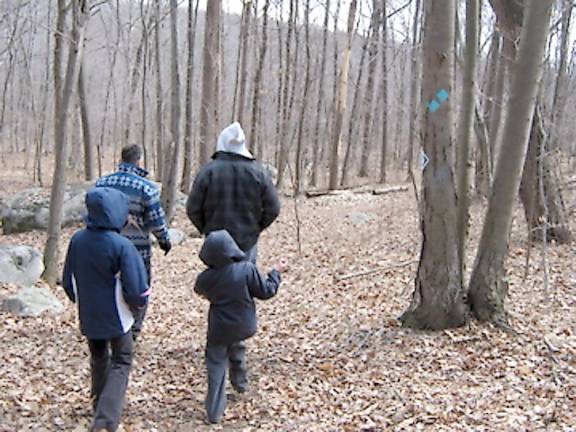
To the Editor:
The New Jersey Division of Fish and Wildlife is going to resume cutting at the Sparta Mountain Wildlife Management Area this month.
The objective of this restoration is to open the forest canopy to allow for the growth of young oak and hickory trees, blackberries, sedges, and a variety of other shrubs and sapling species. This will create breeding and/or foraging habitat for the 80 different bird species that have been observed using other managed sites on Sparta Mountain WMA.
The New Jersey Department of Environmental Protection (DEP) is back with more logging. They are going to be logging another 9.2 acres on top of the 35 acres they’ve already logged on Sparta Mountain. This is death by a thousand cuts. The forests in the Highlands act as natural filters and sponges, and the canopy protects the clean drinking water for 6 million people. Opening up this forest to logging will cause more stormwater runoff, more silt and pollution in our waterways, and will release more carbon.
This mountain belongs to all of us, not to private loggers. The logging of Sparta Mountain is a violation of public trust. These lands were purchased to protect our water supply and contiguous forest. With this plan, they want to turn the Highlands into the Stumplands.
Forestry activities will take place on 9.2 acres in Stand 12, which will be closed to the public while work is being conducted. Tree felling is expected to be completed prior to April 1, 2021.
This plan is a clear cut violation of the reason we passed the Highlands Act which protects canopy forest. The DEP is violating that by using the Golden Warbler habitat as a rationalization to clear-cut an environmentally sensitive forest in the Highlands. There are 75 different species of neo-tropical songbirds that would be impacted by logging on Sparta Mountain plan, in addition to harming threatened and endangered bat species.
This plan does not have any rules or enforcement in place for commercial loggers. That means there is no penalty if they clear cut important forest canopy, clear cut, run skidders through streams and do a lot of damage because there is no mechanism for enforcement, The Highlands Water Protection and Planning Act was signed into law in 2004 to preserve open space and protect the state’s water supply. When it rains, the forest helps to break down rain drops so that the waters soak in the region’s soft soils. This helps re-charge the Highlands aquifers and without the forest it will deplete the groundwater. Without the canopy, the area will experience a decrease in water supply and impact water quality.
120 years ago, we had very few trees or forests left because of timber and fuel logging. The forests have since recovered into mature canopy forests throughout a large portion of the state. The problem becomes how to manage and protect them. Most forests in New Jersey are not in public ownership; they are owned by large landowners or non-profits.
It is critical that the NJDFW makes sure these cuts in Sparta Mountain are done with proper enforcement to protect the wildlife there. These forests in Sparta Mountain were bought for all of us to protect the environment, preserve habitat for important wildlife species, and safeguard clean water.
Jeff Tittel, Director
New Jersey Sierra Club